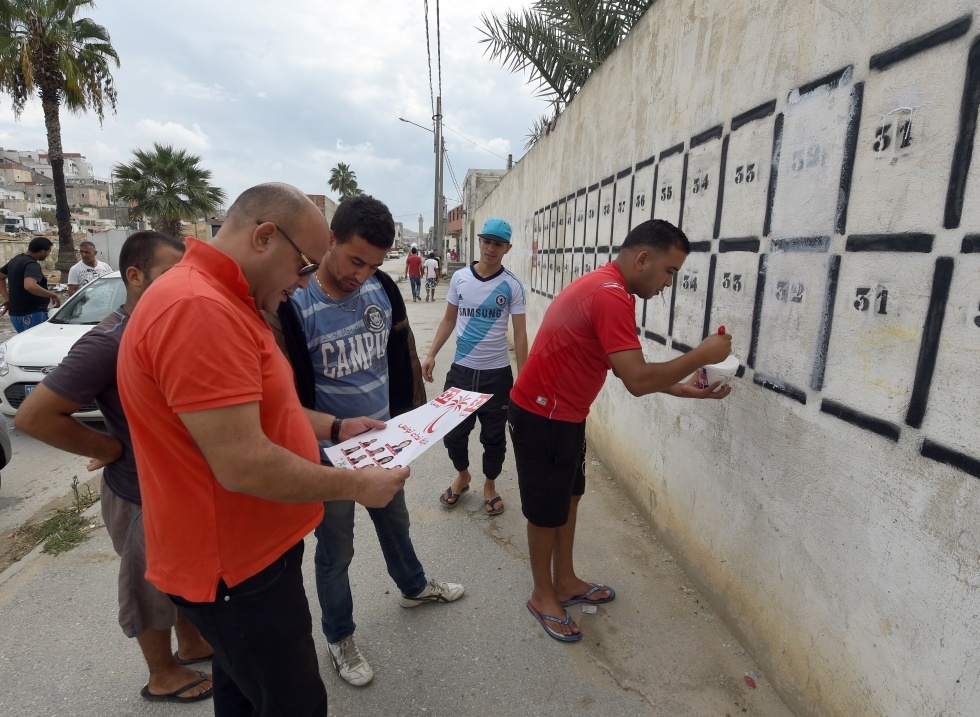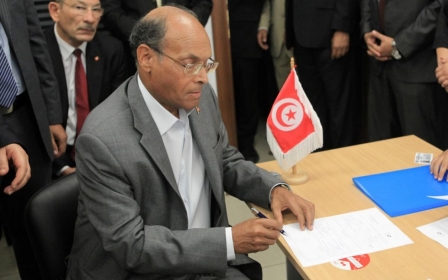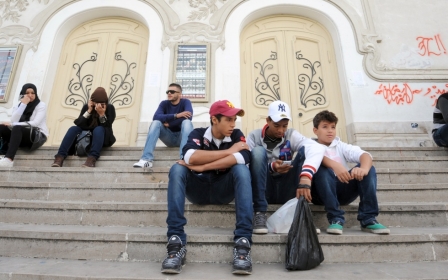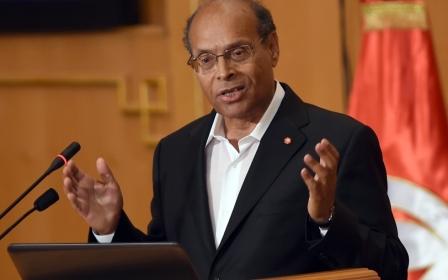Tunisians begin campaigning for parliamentary elections

Campaigning got under way on Saturday as the starting pistol was fired for Tunisia’s parliamentary elections, due to take place on 26 October.
With over 13,000 candidates vying for seats in the 217-strong National Assembly, Tunisia's 5.2 million eligible voters will face parliamentary polls for the second time since the revolution that overthrew the dictatorship of Zine El Abidine Ben Ali.
Among those standing for election are the “moderate” Islamist group Ennahda and former Ben Ali officials, as well as a variety of secularist, socialist and Salafist groups.
The elections will be followed by presidential elections on 26 November.
Tunisia has been seen as the standout country of the Arab Spring uprisings. While Syria and Libya descended into violence and Egypt and Bahrain saw increasing levels of political turmoil and state repression, Tunisia has managed to maintain a relatively open liberal democratic system, though not without sporadic violence and political controversy in some quarters.
Ennahda held the largest number of seats in the National Assembly in 2011 but the process of holding new elections was stalled by political crises and the assassination last year of two opposition lawmakers by suspected Islamist militants.
Parliament ratified a new constitution in January and agreed to break the deadlock after which Ennahda handed over power to an interim government of technocrats.
The party’s leader, Rached Ghannouchi, told reporters last week that they could secure a victory and that he had “confidence in our people, who gave us a high percentage last time."
"By the end of this year we can guarantee that Tunisia will be the first Arab democracy," Ghannouchi said, speaking in English to a group of reporters at the US Institute of Peace.
"But we need the support of the United States for this experience, which can be considered as the alternative of extremism and terrorism and war," he said.
He described the co-operation of Islamists and secularists in the government as "a very rare experience in the Arab world" and one that proves that "democracy and Islam can work together, are compatible."
He lauded the success of Tunisia in maintaining a liberal democracy.
"There is a part of the Middle East (where) there is a candle still shining," he said.
He said Ennahda would not field a presidential candidate but would back a “consensus” candidate.
"It is extremely important... for the Tunisians themselves but also for the European Union and the entire region," said European parliament member Annemie Neyts-Uytterbroeck, who will head the EU's observer mission during the polls.
Already allegations of vote-buying have flared up with Communist politician Hamma Hammami saying he “visited a village in the region of Monastir where people have told me they had been offered 50 dinars ($29) for the vote.”
New MEE newsletter: Jerusalem Dispatch
Sign up to get the latest insights and analysis on Israel-Palestine, alongside Turkey Unpacked and other MEE newsletters
Middle East Eye delivers independent and unrivalled coverage and analysis of the Middle East, North Africa and beyond. To learn more about republishing this content and the associated fees, please fill out this form. More about MEE can be found here.




